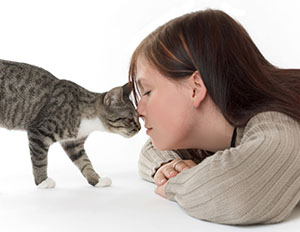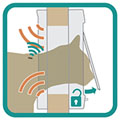Microchipping Your Cat
This single injection provides a permanent identification for your cat for its entire lifetime. It plays a crucial role in proving ownership and helping cats find their way home if they get lost.
With any cat there is always a risk of them getting lost. They may have a fright and run off, or wander into unknown territory and not be able to find their way back. Some cats get shut into sheds and garages during their adventures! We strongly recommend indoor cats are also microchipped as they are less familiar with the surrounding area and are less likely to return home if they do escape.
A microchip is the size of a grain of rice and is implanted via an injection to the back of the neck. Each chip has a unique number which is assigned to your pet. When the cat is scanned using a special scanner this number shows up and is matched with your contact details on an external, national database. Rescue centres and Veterinary clinics will always scan a lost animal that has been brought in for a microchip. More importantly, if your cat is injured and is taken to another vet, they can contact you immediately and start on appropriate treatment as soon as possible.
If you are planning to take your cat abroad, then microchipping will be compulsory for the Pet Passport.
We advise microchipping cats when they are in for their second vaccine or when they are neutered, as they should be kept indoors until this time.

It is also now possible to get cat flaps which are operated via the microchip. This prevents any neighbourhood cats from coming in and stealing your cat’s food, and avoids the need for the magnetic collars, which often get lost.

